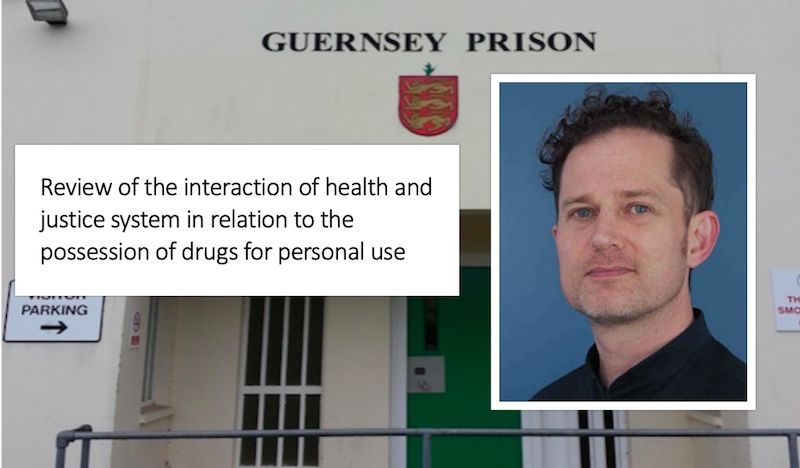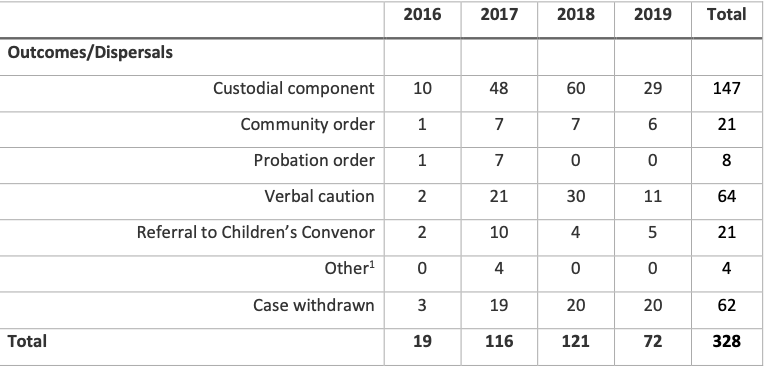


An independent study explored ways that possession of illegal drugs could be addressed without having "long-lasting" consequences on people's lives - some of which could be done without even needing to overhaul current drug laws.
The research carried out by Professor Harry Sumnall of Liverpool John Moores University was published last July, but has remained largely untouched and unnoticed until referenced by Health & Social Care President Al Brouard in the latest States debate.
Commissioned by the previous HSC Committee, the report extensively reviews the international evidence base on health-orientated, non-custodial approaches to the possession of small amounts of drugs for personal use.
Deputy Brouard told States members that while it contained some "useful" information, months and potentially years' more work is needed to come up with alternative, non-punitive responses to personal use.

Pictured: Sentencing powers for drug possession and possession with intent to supply offences under the Misuse of Drugs Law 1974. Table shows the maximum sentences - the indictable offence - that can be handed out.
Analysis of criminal justice data found that between January 2016 and August 2019, there were a total of 910 controlled drug offences, equating to around 7% of all recorded crime.
538 of these were for drug possession (59.1% of total drug offences) and an average of 119 people were convicted each year with custodial sentences, or non-custodial punishments that carried imprisonment as an alternative.
Professor Sumnall explored how a single drug conviction can leaving a lasting stain on a person's life that is difficult to scrub out.
"The potential health and social harms and costs to individuals and communities associated with substance use and criminal markets are significant and well-characterised," he wrote.
"However, unintended harms may also indirectly arise as a consequence of drug policy, and the legal responses to drugs.
"The international literature suggests that a criminal record associated with a drug-related offence can have long-lasting consequences for an individual’s (mental) health, life chances, and wellbeing. A conviction may impose restrictions on employment, international travel, and residency."

Pictured: In 2019, Luxembourg announced preparation of draft legislation leading to the legal regulation of cannabis. Proposed restrictions include a ban on sales to non-residents and home-growing, and a personal possession threshold of 5g.
Even formal cautions appear on enhanced background checks, which can limit employment and travel opportunities until the conviction is 'spent' in the eyes of the law.
A lack of relevant, Bailiwick-specific data or primary research studies made it difficult for Professor Sumnall to estimate the "total burden of drug-related harms", or to draw conclusions on how effective the current laws have been in reducing these.
There is emerging evidence, he wrote, from a number of countries that alternative approaches can reduce criminal justice costs and increase the number of referrals to appropriate support services for those who need them.
"These approaches are supported by the public and professionals (including the police) when clearly explained and when stakeholders are involved in intervention/ policy action," wrote Professor Sumnall.
"Importantly, introduction of alternative approaches does not appear to increase drug use by ‘giving the message’ that drug use is ‘acceptable’."
He added: "There are a number of well-described models that have been delivered internationally, and as more countries are adopting these approaches there are good opportunities for learning.
"Some policy actions may require legal change, but others, such as some types of diversionary approach, can be delivered under existing legislation. Some offences can be retained, or new offences created for drug-related behaviours that fall out of scope of policy focus."

Pictured: The punishments handed out for drug possession offences between 2016 and 2019.
Referring to some of those international models, Professor Sumnall outlined how - at the time of writing - 12 EU countries had outlawed custodial sentences for possession of small quantities of cannabis (Bulgaria; Croatia; Czech Republic; Ireland; Italy; Latvia; Lithuania; Luxembourg; Netherlands; Portugal; Slovenia; Spain).
In some countries (Bulgaria, Croatia, the Czech Republic, Italy, Malta, Portugal, Slovenia and Spain) this also extends to other (but not all) drugs.
There are three main alternatives to the current sentencing regime, according to Professor Sumnall. These are:
Depenalisation - the reduction in severity of custodial sentences for drug possession. Punitive sanctions may also be replaced by warnings or cautions, opportunities for diversion into drug screening, education and/or treatment programmes.
Decriminalisation - the formal process of removing criminal penalties for drug possession offences. This can be provided in law, or in sentencing guidelines. Under decriminalisation, possessing less than a legally defined amount of a controlled drug no longer leads to an individual being punished through a criminal record or custodial sentence. For repeat offenders, there may be diversion into targeted support that aims to address use of drugs and/or offending behaviour.
Diversionary activities - these can take place without depenalisation or decriminalisation of drug possession. This means they could be used without any change in the legal framework, or as an interim measure ahead of further changes.
One such approach has been delivered by Thames Valley Police (UK) since 2018. Instead of being arrested for breaking the laws, people found in possession of any substance is eligible for community-based support and drug service referrals.
This is not recorded on standard Disclosure and Barring Service checks and attendance at the drug service is voluntary. If they choose to participate, individuals receive assessment, targeted education, and if appropriate, referral into drug services.

Pictured: Around a third of the prison population at any one time is made up of people convicted for drug possession, supply or importation.
Checkpoint is a voluntary adult offender programme operating in Durham Constabulary that targets low-level offenders entering the criminal justice system by providing an alternative to criminal prosecution, which is deferred while attempts are made to resolve underlying issues.
This approach differs from the Thames Valley Police model as participants agree to adhere to a "behavioural contract" with a number of conditions, and are supported by a case worker who offers "substantial and meaningful contact", encouraging them to engage with services to address drug use and other offending behaviour
If participants re-offend or do not engage with their case worker, the contract is considered to be breached, and all suspended prosecution proceedings are re-activated. If the conditions of the contract are satisfied, then the matter is resolved by the way of a 'community resolution' - a non-statutory method that is not disclosed on background checks.
Portugal also offers a well-known diversionary approach. A person caught using or possessing less than the threshold amount of a drug for personal use, where there is no suspicion of involvement in supply, is referred by police for an evaluation by a 'Commission for Dissuasion of Drug Addiction', which carries out an individual assessment.
Punitive sanctions can still be used, but the main objective is to explore the need for further support, so clients can be referred to local services, including drug treatment, (mental) health and social care, employment support, education, and child protection.
Available sanctions include warnings, suspended sentences, community sentences, required attendance at drug treatment clinics, loss of driving license, and fines.
As the primary objective of the CDT is to identify people experiencing problems with their drug use and provide treatment, most attendees receive a suspended sentence.

Pictured: Harry Sumnall is a Professor in Substance Abuse at Liverpool John Moores University.
Professor Sumnall concluded his report by saying there is a rich evidence base of "contemporary" approaches to sentencing of drug possession, all of which can be "learned" from and potentially applied to the Bailiwick if properly considered.
"A number of different models providing non-punitive (or alternatives to punitive) approaches to possession offences have been presented. Some of these have been in operation for many years in several countries, including the UK, and provide good opportunities for learning, and refinement of actions to ensure complementarity with the Guernsey and Alderney context, and the structures and systems required to deliver them.
"Importantly, all the approaches presented in this report are compatible with international drug control Conventions, and contemporary international drug policy norms in comparator countries, that have been moving towards less punitive approaches to possession offences over the last few decades.
"Some of the described approaches require legal change, but others, such as some types of diversionary approach, can be delivered under existing legislation or require relatively minor legal change.
"A common feature of many international models is that although punitive responses are removed/minimised, or alternatives introduced, punishments for other drug-related offences can be retained if necessary, and new offences created for those behaviours that fall out of scope of policy change, or where there are mitigating factors such as repeat offences or failure to adhere to any conditions of a non-punitive response."
The report can be read in full HERE.
Comments
Comments on this story express the views of the commentator only, not Bailiwick Publishing. We are unable to guarantee the accuracy of any of those comments.